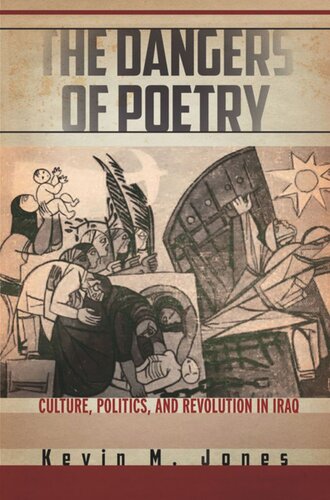

Most ebook files are in PDF format, so you can easily read them using various software such as Foxit Reader or directly on the Google Chrome browser.
Some ebook files are released by publishers in other formats such as .awz, .mobi, .epub, .fb2, etc. You may need to install specific software to read these formats on mobile/PC, such as Calibre.
Please read the tutorial at this link: https://ebookbell.com/faq
We offer FREE conversion to the popular formats you request; however, this may take some time. Therefore, right after payment, please email us, and we will try to provide the service as quickly as possible.
For some exceptional file formats or broken links (if any), please refrain from opening any disputes. Instead, email us first, and we will try to assist within a maximum of 6 hours.
EbookBell Team

4.3
58 reviewsPoetry has long dominated the cultural landscape of modern Iraq, simultaneously representing the literary pinnacle of high culture and giving voice to the popular discourses of mass culture. As the favored genre of culture expression for religious clerics, nationalist politicians, leftist dissidents, and avant-garde intellectuals, poetry critically shaped the social, political, and cultural debates that consumed the Iraqi public sphere in the twentieth century. The popularity of poetry in modern Iraq, however, made it a dangerous practice that carried serious political consequences and grave risks to dissident poets.
The Dangers of Poetry is the first book to narrate the social history of poetry in the modern Middle East. Moving beyond the analysis of poems as literary and intellectual texts, Kevin M. Jones shows how poems functioned as social acts that critically shaped the cultural politics of revolutionary Iraq. He narrates the history of three generations of Iraqi poets who navigated the fraught relationship between culture and politics in pursuit of their own ambitions and agendas. Through this historical analysis of thousands of poems published in newspapers, recited in popular demonstrations, and disseminated in secret whispers, this book reveals the overlooked contribution of these poets to the spirit of rebellion in modern Iraq.